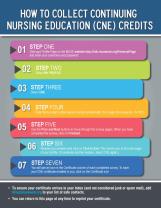What is a CE course?
A Continuing Education (CE) course is an educational program designed for professionals in various fields to enhance their knowledge, skills, and competencies after completing their initial education or training. The primary purpose of CE courses is to provide ongoing learning opportunities that help individuals stay current with developments in their respective industries and maintain or improve their professional qualifications.
Here are key elements that define a Continuing Education course:
Target Audience:
- CE courses are tailored for professionals who have already completed their initial education or training in a specific field. The target audience may include individuals such as healthcare professionals, teachers, engineers, counselors, and others.
Content Relevance:
- The content of CE courses is typically relevant to the profession or industry in which the participant works. It may cover updates in technology, changes in regulations, advancements in best practices, or other pertinent topics.
Delivery Formats:
- CE courses can be delivered through various formats to accommodate the needs and preferences of participants. Common delivery methods include in-person workshops, conferences, online courses, webinars, and self-paced study modules.
Duration and Credits:
- CE courses are often structured to meet specific time requirements, with participants earning Continuing Education Units (CEUs) or similar credits upon completion. The number of credits awarded is based on the duration and intensity of the course.
Accreditation and Approval:
- To ensure the quality and relevance of the content, CE courses are often offered by accredited providers. Accreditation may be granted by professional associations, regulatory bodies, or educational institutions. Approval from relevant governing bodies may be required for the earned credits to count toward professional development or license renewal.
Assessment and Evaluation:
- Many CE courses include assessments or evaluations to gauge participants' understanding of the material. This could involve quizzes, exams, or practical demonstrations, depending on the nature of the course.
Documentation and Record-Keeping:
- Participants are typically required to maintain documentation of their completion of CE courses, including certificates or transcripts. This documentation may be necessary for purposes such as license renewal, certification maintenance, or employer requirements.
Diversity of Topics:
- CE courses cover a wide range of topics within a profession. For example, healthcare professionals may take CE courses on new medical procedures or patient care techniques, while teachers may engage in courses on innovative teaching methods.
Professionals seeking to fulfill their ongoing education requirements or stay updated in their fields can choose from a variety of CE courses that align with their career goals and interests. The specific requirements and regulations regarding Continuing Education can vary by profession and jurisdiction. Individuals should check with their relevant licensing or certification boards to ensure that the courses they choose meet the necessary criteria for professional development.
What does a CE (Continuing Education) course entail?
A continuing education (CE) course, also known as continuing professional development (CPD) in some contexts, is a learning experience designed to help professionals stay up-to-date in their field, enhance their skills, and meet any mandatory requirements for maintaining their licenses or certifications.
The specific content and format of a CE course can vary greatly depending on the profession, topic area, and provider. However, here are some general characteristics of what you can expect:
Content:
- Focus on current trends and best practices: CE courses typically cover the latest advancements, research findings, and practical applications relevant to the specific profession.
- Variety of topics: The range of topics can be quite broad, depending on the field. For example, a nurse might take a course on new medication management protocols, while a teacher might take a course on incorporating technology into the classroom.
- Depth of knowledge: CE courses can range from introductory overviews to in-depth examinations of specialized topics.
Format:
- Delivery methods: Courses can be delivered in various formats, including in-person workshops, online modules, webinars, self-paced learning activities, or blended formats combining different methods.
- Length and intensity: The duration of a CE course can vary from a few hours to several days or even weeks, depending on the complexity of the topic and the learning objectives.
- Interactive learning: Many CE courses incorporate interactive elements like case studies, group discussions, simulations, or hands-on activities to promote active learning and engagement.
Benefits:
- Stay competitive: CE courses help professionals stay current with the latest developments in their field, making them more competitive in the job market.
- Enhance skills: CE courses can help professionals develop new skills or refine existing ones, leading to improved job performance and career advancement opportunities.
- Meet license requirements: In many professions, CE credits are mandatory for maintaining licenses or certifications. Taking CE courses ensures compliance with these requirements.
- Network with peers: Some CE courses provide opportunities for professionals to network with colleagues and learn from each other's experiences.
Here are some additional things to keep in mind about CE courses:
- Cost: The cost of CE courses can vary depending on the provider, format, and length. Some employers may offer financial assistance for CE courses.
- Accreditation: Look for courses that are accredited by reputable organizations to ensure the quality and legitimacy of the content.
- Learning objectives: Before enrolling in a course, make sure the learning objectives align with your specific needs and interests.
I hope this overview gives you a better understanding of what a CE course entails. If you have any further questions about specific professions or types of CE courses, feel free to ask!









